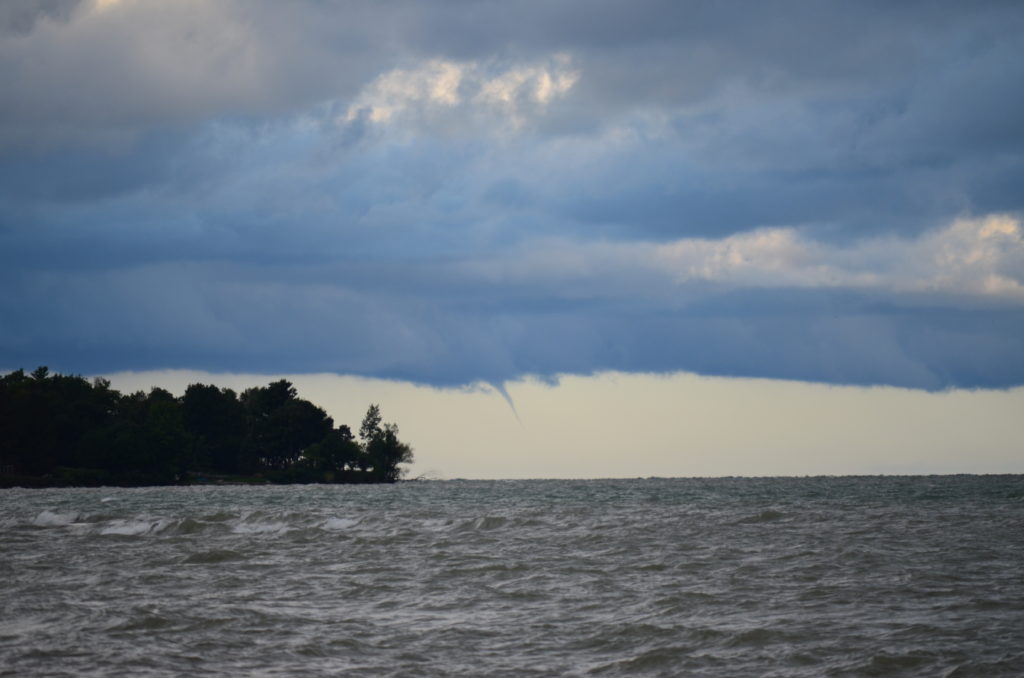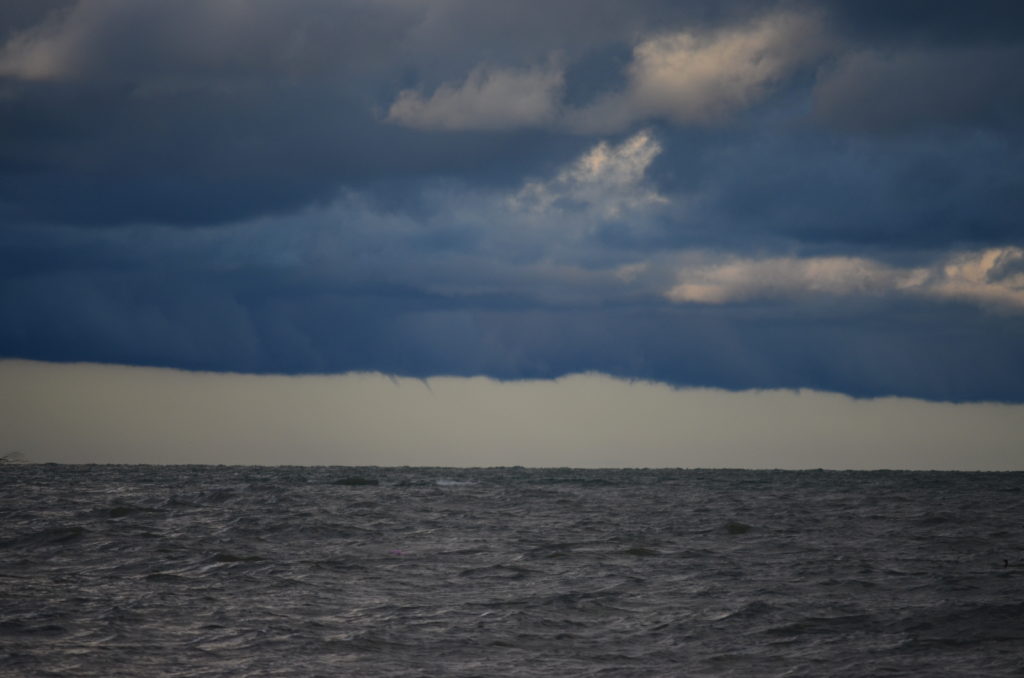Hello, Oswego! You’ve officially made it through the first week of classes.
As many of you know, I frequently visit the lake shore, most often at sunset. However, last week (on August 24) I went down to the rocks at about 7am. This is what I saw, 30 minutes later:
A waterspout!
Waterspouts are common on the Great Lakes, especially from late July to mid October. However, it is pretty uncommon to actually see them from the lake shore, let alone from a specific location such as Oswego. This is due to the fact that most form far enough offshore, that they can’t be seen from the shore. And the ones that do form near the shore often occur at night or in the early morning, when it’s either too dark or most people are still sleeping. Here in Oswego, spouts are visible 2 to 3 times a year, on average.
Waterspouts on the Great Lakes most often occur when relatively cold air passes over a warmer body of water. This generates a lake-effect response. Other features, such as a passing cold front, land breeze [an offshore wind], and convective circulations can enhance the “spin” within the lower levels of the atmosphere. When a circulation becomes strong enough, it generates a funnel cloud, and once that circulation hits the water (similar to when a tornado touches down) it is officially classified as a waterspout. Spouts are usually not a threat to land, however boaters must take necessary precautions if spouts are possible or occurring.
This particular spout actually started off as two funnel clouds (look closely just left of center):
The funnel on the right took over and eventually became the waterspout pictured above.
So, if you head down at the lake on a cool, breezy day, you might just get lucky and see one of nature’s secret phenomena. Have a great week!




